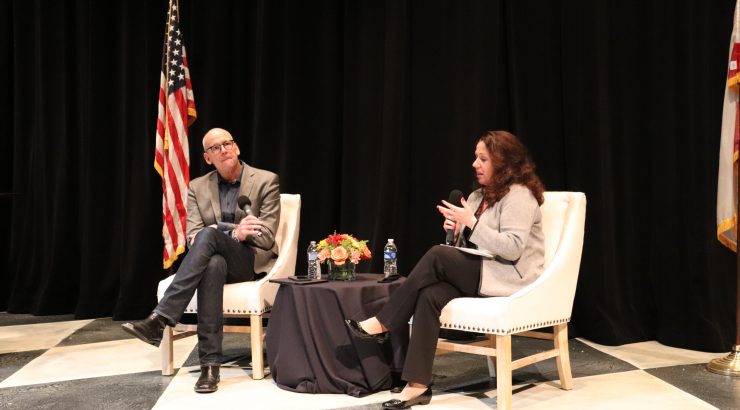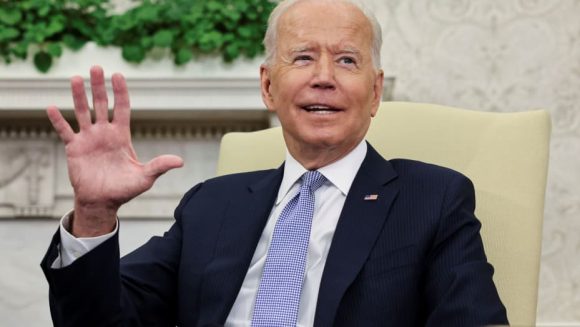
Bill and Ronna Shipman Distinguished Speaker Series in Presidential Studies Featuring John Heilemann
October 29, 2021
Recently, Wilkinson College of Arts, Humanities, and Social Sciences hosted John Heilemann in the inaugural installment of the Bill and Ronna Shipman Distinguished Speaker Series in Presidential Studies. Heilemann is a National Affairs Analyst for NBC and the co-host and executive producer of Showtime’s The Circus, a political documentary series that reports on significant American political issues.
“If you want to know what happened last week in politics that was important, we’re going to tell you a story about it that’s not ideological,” he stated. “Our documentaries…. [show] how America is a complicated thing, [they show] a bunch of different angles to help you make up your mind.”
The presentation was moderated by Dr. Lori Cox Han, Doy B. Henley Chair of American Presidential Studies and Director, Presidential Studies Program. The speaker series was created to “encourage substantive and topical debate on topics related to the American presidency” and to provoke critical thinking “regardless of ideological perspective,” Han noted. As a fan of The Circus, she knew that Heilemann “would be great at addressing the complexities of not only the political process but also the power of the mass media.”
Lucas Rostler (‘22, Political Science Major), having watched episodes of The Circus in class with Dr. Han, characterized Heilemann’s speech as “very objective and unbiased.” Rostler voiced that “the answer is always somewhere in the middle… and [Heilemann] sees that really well because he is able to see nuance so well.”
Heilemann explored the interrelated nature of media and politics. He addressed how “You can’t understand the media environment without understanding the political environment…[and] you can’t understand why America is screwed up without understanding both.” Variation among political coverage used to be uncommon, but today there are hundreds of television networks with vastly different coverage of the same political stories. “I’ve been worried about political bias for a long time and it’s just getting worse and worse, closer to the edge and surface than it’s ever been,” he stated.
According to Heilemann, the greatest challenge facing journalists today is figuring out “how to make clear the stakes of what’s going on in the country, how to tell the truth about it, and how to continue what journalists are meant to do: comfort the afflicted and make the afflicted comfortable.”
Heilemann acknowledged how journalistic media has been largely disrupted by the advent of social networks. Despite his belief that “abundant media is a much more
democratic system,” one which empowers any individual to spread their beliefs and earn widespread attention on social media, Heilemann lamented the lack of accountability and fact-checking in such platforms, stating how “It’s kind of a problem… when the biggest source of news in the world has no responsibility [to the truth.]”
In the face of America’s grave political polarization, Heilemann feels the country is now past the point of ever reacting mildly to presidential politics again. Current factors surrounding President Joe Biden’s administration, such as economic variables and the perception of Biden’s weakness, led Heilemann to conclude that the president “is leading the [Democratic] party to certain disaster”— the result of which will do nothing to soothe the current state of politics. Heilemann also remarked how most would never have imagined that Joe Biden, having been affectionately nicknamed “Uncle Joe” by the press in the past, would become the subject of hateful and impassioned animosity; however, this exemplifies the ease with which Americans today “fixate attention on one person, the President, instead of the 435 Congressional members,” most of whom you “wouldn’t necessarily like.”



